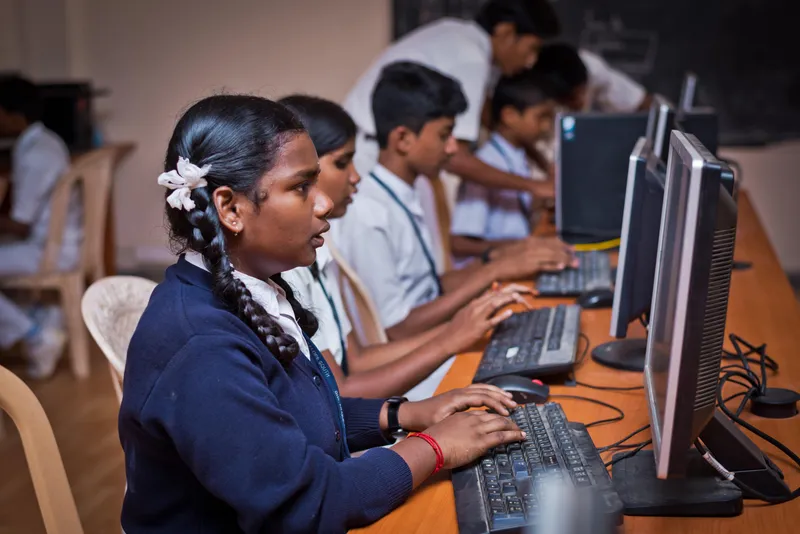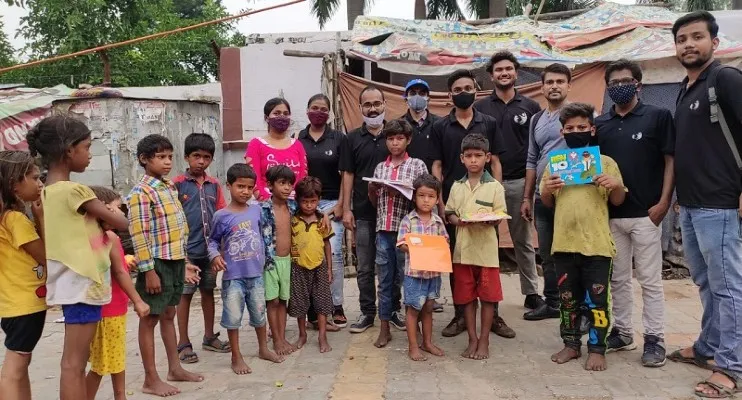These 5 NGOs are working to brighten up the lives of underprivileged kids
On Children's Day, SocialStory brings you a list of NGOs that are working to better the life of underprivileged children.
The gross enrolment ratio (GER) in India when it comes to higher education is only 25.2 percent, quite low when compared to many developing and developed nations.
Some of the major reasons for the low GER include the poor quality of education, shortage in proficient faculty, the regional disparity in access, and the economic constraints of paying the fees.
But, many enterprises are helping improve the quality of education in the country.
On the occasion of Children's Day, SocialStory brings you a list of some of the non-governmental organisations (NGOs) working for the betterment of underprivileged children.
Bal Utsav
Started in 2009 by couple Binu Verma and Ramesh Balasundaram, Bal Utsav is a collective of people bound by a shared passion to promote social good by focusing on sustainable interventions for children, especially in education.
It has developed a 360-degree school revitalisation programme focusing on four key areas of interventions: school infrastructure; WaSH (Water, Sanitation, and Hygiene); teacher development; and scholarships for students.

Bal Utsav also provides computer lab facilities for the students
A decade of tenacious efforts by the founding team have helped improve the lives of underprivileged children. As a result today, over 200+ government schools in Karnataka have been revitalised and nearly 800,000 students have benefited through its flagship programmes.
Smile For All Society
An initiative by Bhunesh Sharma and his wife Neha Sharma, Jaipur-based Smile For All society (SFA) is an NGO dedicated to providing private school education to underprivileged children.

Smile for All Society
With about 4,000 volunteers, SFA has managed to reach out to and conduct educational surveys in 100 slum areas throughout India.
The core team and band of volunteers of SFA work to raise awareness about the plight of children in slums, and the importance of quality education and literacy amongst underprivileged populations.
The team also counsels families, assuring them that their children will be safe and accepted into the new school environment.
Enabling Leadership
Enabling Leadership was founded to support programmes that used creative or alternative mediums to teach leadership and 21st century skills, such as problem-solving, critical thinking, confidence, or collaboration.

A global for-purpose organisation, Enabling Leadership is registered in the Netherlands, the US, and Singapore, and works with children in India and Cambodia.
It works with children from at-risk and low-resource communities, via collaborations with government and low-income schools.
Its programmes use creative methods to inculcate strong belief systems, develop excellent problem-solving skills, and build a keen sense of awareness in the children it works with.
Avanti Fellows
Akshay Saxena and Krishna Ramkumar founded Avanti Fellows with their friends to help students from low-income families gain opportunities to study in India’s best colleges.
Avanti Fellows, a non-governmental organisation, provides access to quality tertiary education to meritorious students from low-income backgrounds.

Avanti helps prepare students for various competitive exams.
Every year, they engage with over 50,000 students as part of their classroom programmes.
In the last few years, the programme has benefited 10,000 students across multiple schools in Puducherry, Bidar, Hassan, Koppal, Shegaon, Wardha, and Palghar, among others.
Pratham Education Foundation
Established in 1995, Pratham Education Foundation aims to address gaps in the education system and improve the quality of education in India.
The NGO aids the students of government schools in Lucknow, Uttar Pradesh, in learning the basics of bank transactions in the hope that it will allow children to exercise their argumentative skills and inculcate a more systematic method of learning.

These schools in Lucknow teach students from Class II and III to carry out bank transactions with the help of specially printed currency notes in denominations of up to Rs 10,000.
Children work in groups, which allows them to assist their peers in opening bank accounts. Besides, they are taught to discharge the duties of a cashier. Maintaining records and dealing with customers are other skills that are inculcated in these students by these lessons.
Edited by Teja Lele








